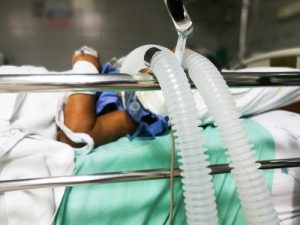 The battle to preserve Jahi McMath’s life began five years ago when, after complications arose from a routine tonsillectomy, her devastated family was told by doctors that Jahi was brain-dead. The family’s disagreement with this declaration started a months-long battle between the McMaths and the Children’s Hospital and Research Center in Oakland, California.
The battle to preserve Jahi McMath’s life began five years ago when, after complications arose from a routine tonsillectomy, her devastated family was told by doctors that Jahi was brain-dead. The family’s disagreement with this declaration started a months-long battle between the McMaths and the Children’s Hospital and Research Center in Oakland, California.
On June 22, 2018, the McMath family attorney said, “Jahi died as the result of complications associated with liver failure.” This journey for the family, though they have lost Jahi, is undoubtedly not over, as a medical malpractice or wrongful death lawsuit could follow a traumatic experience such as this.
The Tragic Consequences of Jahi McMath’s Surgery
It was December 9, 2013, when 13-year-old Jahi underwent surgery to remove her tonsils, adenoids, and extra sinus tissue to correct pediatric obstructive sleep apnea, a condition that made her stop breathing in her sleep and contributed to other medical problems. Post-surgery, Jahi was alert and talking. Shortly after, she started to bleed from her mouth and nose and went into cardiac arrest. On December 12, 2013, Jahi was declared brain-dead.
The McMath family refused to accept this diagnosis, believing that Jahi could still recover. They demanded to keep her on a ventilator and argued that she showed signs of life. A battle between the hospital and Jahi’s family ultimately led to a judge concluding that the girl was brain-dead. Various experts confirmed the hospital’s brain-death diagnosis. The hospital argued that the court should lift a restraining order requiring life support for Jahi.
Who Gets the Final Say – Family or Hospital?
Jahi’s hospital, in court papers, wrote that, “Because Ms. McMath is dead, practically and legally, there is no course of medical treatment to continue or discontinue; there is nothing to which the family’s consent is applicable…Children’s is currently merely preserving Ms. McMath’s body from the natural post-mortem course of events. There is no legal, ethical or moral requirement that it continue to do so or that the family consent in the decision to stop doing so.”
Television medical shows dramatize life or death situations, but the reality of a loving a patient who has been declared brain-dead is not ultimately wrapped up with a bow at the end of an hour on cable. “What this case represents legally is that parents can say no when a hospital says, ‘We’re pulling the plug,’” the family’s attorney said. Jahi was released from the hospital in January 2014 and the family transferred her to an undisclosed location for treatment and care.
Making Sense of a Brain-Death Diagnosis
Jahi’s case begs the question: What legally and ethically constitutes brain death? When a person is brain-dead, they may appear alive because there is a heartbeat, their skin is warm to the touch, and they may look like they are breathing. However, when brain activity ceases, there is no life, doctors say.
Brain-death is different than a coma, which is usually brief and sometimes medically induced to give the patient time to heal their brain. People in a coma can regain full consciousness or they may transition into a persistent vegetative state, a condition where the brain shows some activity and can sometimes be recovered from.
When the brain no longer helps the patient function, that is brain death. And this is what the doctors argued about Jahi. The McMath family attorney argued that Jahi suffered severe blood loss after her surgery and medical staff failed to treat her or summon a doctor after her surgery.
Ultimately, Jahi’s death certificate states that the teen suffered from an anoxic brain injury for four years, a traumatic brain injury that occurs when the brain is deprived of oxygen.
The Aftermath of a Surgical Tragedy
Should the hospital have provided better care? Was Jahi’s situation a tragic one that could not have been helped or foreseen? These are questions for a court to decide. Jahi’s mother left her job, sold her house and most of her belongings, and cashed in her savings to be with her daughter. The pain and suffering for a patient and their family because of medical malpractice, medical negligence, or wrongful death deserves retribution.
If someone you love has suffered or lost their life because of medical malpractice or medical negligence, contact Thurswell Law for a free consultation to discuss your case. You may be entitled to compensation. We do not charge any fees unless you collect. Call (248) 354-2222 today.







